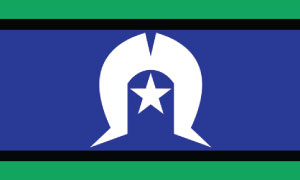[CLCs Australia will be reviewing Reasons for Referral in consultation with Centres and FVPLS. We have developed the following table as a starting point to clarify when each reason should be used, and welcome your feedback].
Capturing and recording Reasons for Referral allows Centres to better understand the pressure on their service. If the data is captured accurately, it can be used as a way to measure the number of people who are turned away from the Centre because of resource constraints (“turnaways”). This data can then in turn be used by the Centre to underpin their work campaigning for improved funding to the Centre.
Note: In CLASS, the bulk-entry tool for Information and Referrals does not allow you to record the Reasons for Referral.
The Data Standards Manual sets out the following four main reasons for referral:
In CLASS, there are seven main Reasons for Referral available to all CLASS Users. However individual Centres frequently have their own custom reasons for referral.
We will work with Centres to:
The main Reasons for Referral currently in CLASS are set out below, with guidance as to which reasons should be used in which circumstances. We suggest that Centres look at Capacity as the last reason, and only use this when there is no other reason for referring someone away from the Centre. Note that we are also looking at adding a specific Reason for Referral which can be used by referral bodies such as LawRight QLD, JusticeNet SA, Law Access WA, to record their pro bono referrals.
CLASS Reason for Referral | Circumstances in which to use | National Data Standard Reason (1-4) |
|---|---|---|
Already instructing a private solicitor | Where caller or Service User is already receiving assistance from a private solicitor and it is appropriate that they keep using that solicitor. If during an Advice, it is clear that a Service User clearly cannot afford a private solicitor, but the CLC also doesn’t have capacity, this should be recorded as “Centre does not have capacity” |
|
Centre does not offer service required | This category applies when the person who is seeking assistance is:
Do not use this category for the situation where a person is seeking help in an area of law in which the Centre:
|
|
Conflict of Interest | Your Centre cannot assist due to a conflict of interest. This includes conflicts of interest with former Service Users, staff, volunteers, Management Committee/ Board members. |
|
Eligible for Legal Aid | Your Centre should only use this category where it is highly likely that person would be eligible for services provided by a Legal Aid Commission or Aboriginal and Torres Strait Islander Legal Service. This category can be used:
|
|
Not in Catchment area | Use this category where the person seeking assistance lives, and/or the legal problem occurred in, a geographic region not covered by the Centre. |
|
Person could not be assisted within time frame needed or wanted by them | Use this category where your Centre cannot provide the person with an initial appointment:
|
|
Referred to Funded Agency (ie. Welfare Rights) | Try not to use this reason, instead use “Specialist Service Available” (CLCs Australia is considering hiding this Reason) |
|
Specialist Service available | Your Centre could assist the person in the area of law, but there is specialist service better placed to assist. For example, a person calls generalist Centre about a social security matter, is referred to the state-wide Welfare Rights Centre. |
|
*Wanted guaranteed Court representation | Where Service User has explicitly asked for, or clearly needs someone to represent them in court, but the Centre does not have the capacity to do this. This Reason can be captured during an initial Information and Referral, or during another Service such as Legal Advice or Duty Lawyer. |
|
Referral clearing house | [new referral reason to be made available]. The reason for the referral is because it is actual the Centre’s role to secure a pro bono lawyer for a Service User. Referral Centres such as LawRight QLD, JusticeNet SA, Law Access WA, Justice Connect (NSW and Vic) should use this as the reason against a Facilitated Referral. |
|
Centre does not have capacity to deliver service | “Capacity” here means “resources”, that is, the Centre does, or could, provide services in this area of law, but has insufficient resources to provide the service to that particular person. This should be the default Reason selected where the Centre knows that the person is being turned away because of lack of capacity. Examples of lack of capacity that could fall into this Reason include:
|
|
*** Internal Referrals | [Do not use this reason. CLCs Australia is considering hiding this reason]. Internal Referrals should not be counted towards Referrals generally. If your Centre wants to record these, contact CLASS Helpdesk to discuss creating a separate custom field called “Internal Referral” which can sit within existing Services eg Legal Advice, Representation Service. Also see Case Study – Zoe’s internal referral | Should not be captured |
Other | [All efforts should be made not to use this Reason]. If you have a Reason for Referral that you think is not covered by any within this Table, email us so we can consider this in the review of Reasons for Referral: icthelp@clcs.org.au. Alternatively, Helpdesk can help you create a custom Reason that makes sense for your Centre, and maps up to one of the seven reasons. | Each custom field should be mapped accordingly |


Community Legal Centres Australia acknowledges the traditional owners of the lands across Australia and particularly acknowledges the Gadigal people of the Eora Nation, traditional owners of the land on which the Community Legal Centres Australia office is situated. We pay deep respect to Elders past, present and emerging.

Community Legal Centres Australia is a proudly inclusive organisation and an ally of the LGBTIQ+ community and the movement toward equality.
ABN 67 757 001 303 ACN 163 101 737
Disclaimer | Privacy Policy
© Community Legal Centres Australia 2022 | Designed by DropIn Solutions